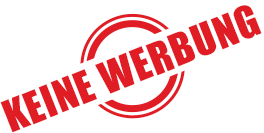REACH
9 December 2024
James Cropper
plc
("James
Cropper", the "Company" or the "Group")
Collaboration with Oxford
University
James Cropper Advanced Materials and
Oxford University Secure Prestigious Grant for Next-Generation
Battery Electrodes
James Cropper (AIM: CRPR), the
Advanced Materials and Paper & Packaging group, is pleased to
announce that its Advanced Materials division has entered into a
collaboration with Oxford University to spearhead the
development of next-generation battery electrodes.
This project, which is being
funded by the renowned Henry Royce Institute's
Industrial Collaboration Programme, aims to revolutionise battery
performance through extensive research into the use of innovative
materials.
Leveraging the state-of-the-art R&D and
analytical facilities at Oxford University and the Henry Royce
Institute ("Royce"), the team will investigate the material
properties of James Cropper's advanced carbon fibre nonwoven veils
and their correlation to enhanced battery performance, including
faster charging times and improved efficiency.
Oxford University's Department of Materials is
a world-class research institution with expertise in the
manufacture, properties, and application of advanced materials.
This collaboration represents a significant step towards addressing
the evolving demands of the energy storage market and advancing the
development of sustainable energy solutions.
Royce is the UK's national institute for
advanced materials research and innovation. Providing access to
world class research capabilities, infrastructure, expertise, and
skills development, Royce works with the UK advanced materials
community to develop solutions for national and global challenges.
The Industrial Collaboration Programme connects businesses and
research organisations to drive groundbreaking advancements in
materials science. The James Cropper and Oxford University battery
materials project is scheduled for completion within six
months.
Dr. David
Hodgson, Chief Technology Officer at James Cropper Advanced
Materials, said: "Batteries are pivotal in the global
transition away from fossil fuels. However, current technologies
face limitations in meeting market demands for higher power, faster
charging, and lower costs. To address these challenges, we need
innovative materials and technologies. Our carbon fibre veils are
proving instrumental in unlocking new possibilities. This
collaboration with Oxford University, supported by Royce's ICP
funding, is significant as it will enable us to thoroughly
understand and evaluate how integrating carbon fibre into electrode
designs can enhance battery chemistries and
performance."
Enquiries
James Cropper plc
Steve Adams, CEO
Andrew Goody, CFO
Tel: +44 (0) 1539 722 002
Shore Capital - (NOMAD and
Broker)
Daniel Bush, David Coaten, Henry
Willcocks, Lucy Bowden
Tel: +44 (0) 207 408 4090
Burson Buchanan - Financial
PR
Chris Lane, Charles Ryland, Jamie
Hooper, Verity Parker
jamescropper@buchanancomms.co.uk
Tel: +44 (0) 207 466 5000
Notes for editors:
James Cropper is a market leader in
Advanced Materials and Paper & Packaging, centred around
four market audiences: Energy Solutions, Composite
Solutions, Luxury Packaging and Creative
Papers.
A purpose-led business, built upon
six generations of the Cropper family, James Cropper has a 600+
international workforce and an operational reach in over 50
countries.
Established in 1845, the Group
manufactures creative papers, luxury packaging and advanced
materials incorporating pioneering non-wovens and electrochemical
coatings.
James Cropper is a specialist
provider of niche solutions tailored to a unique customer
specification, ranging from substrates and components in hydrogen
electrolysis and fuel cells to bespoke colours and textures in
paper and moulded fibre packaging designed to replace single use
plastics.
The Group operates across multiple
markets from luxury retail to renewable energy. It is renowned
globally for service, capability, pioneering and multi
award-winning commitment to the highest standards of
sustainability.
James Cropper's goal is to be
operationally net zero by 2030 and to reduce carbon through its
entire supply chain to net zero by 2050.

